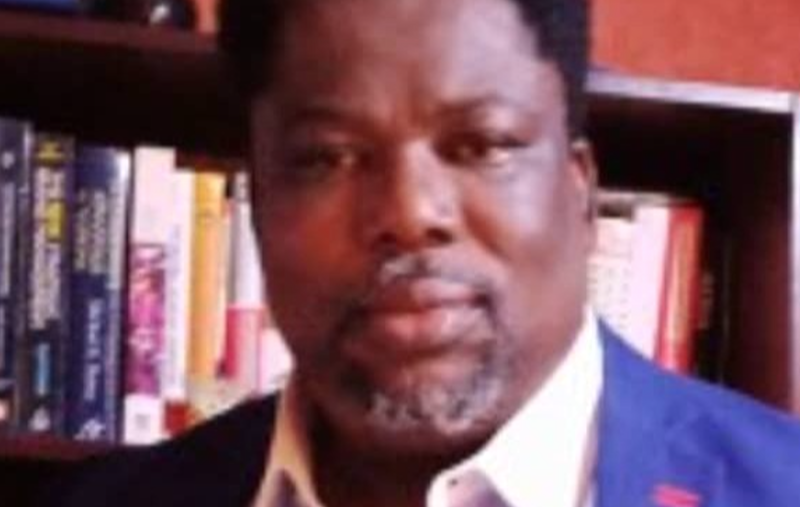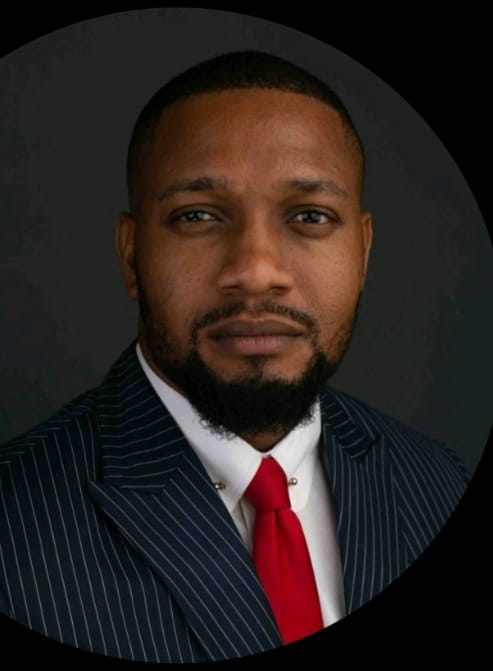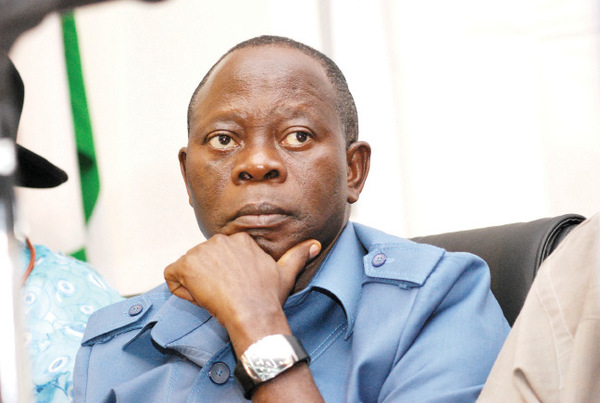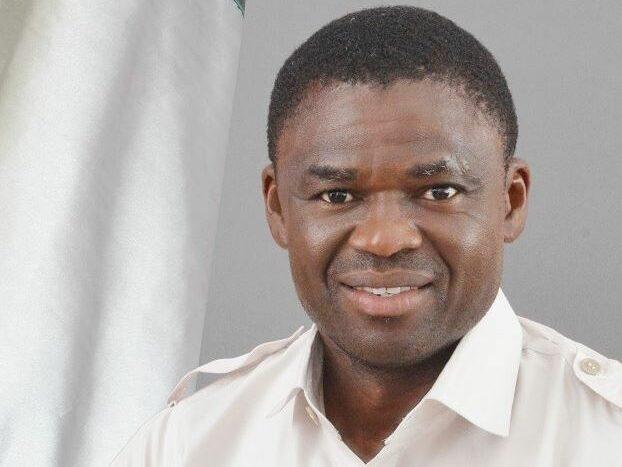“Everything is possible in Rivers State as long as you can dream it” were the words of Ibim Seminatari, the then commissioner of Information, from the documentary-Rivers of Possibilities-during the tenure of Rt. Hon. Rotimi Amaechi as governor of Rivers State between 2007 and 2014, after being the speaker of the state house of assembly from 1999 to 2007. He later became the minister of transportation under President Buhari till 2019. No one understands better what Rivers of Possibilities truly meant than this politician from Ikwerre stock who narrowly missed becoming the presidential aspirant on the platform of the APC. The Rivers of Possibilities crooner hired a Lagos-based PR firm that did a fantastic job projecting Rivers State as that land with vast potentials, where anything is possible.
Today, the unfolding blockbuster from the oil-rich State is better imagined, or like the former commissioner puts it, if only you can dream it. Once upon a time, Dr Peter Odili, the strongman of Rivers politics and one of the most colourful and vibrant governors between 1999 and 2007- could not stop his mentee, Rotimi Amaechi, from against all odds succeeding him. That struggle produced one of Nigeria’s impossible electoral jurisprudences when an Amaechi that was not on the ballot was given the mantle by the Supreme Court, after which shut that window never to be cited as a judicial precedence in Nigeria, this river comes with so many impossibilities.
To say impossibilities is a common occurrence in Rivers State will be stating the obvious when the same Amaechi came out strongly against Goodluck Jonathan, his fellow party man and spent Rivers money for the electoral victory of President Buhari. For concerned onlookers, if Goodluck had returned, Amaechi would have allegedly ended up in bars, not necessarily for corruption charges, but it is our just way – go after perceived enemies or threats ruthlessly. He survived, and the rest is history.
The same Rivers State that flows with impossibilities produced Governor Nyesom Wike, who burst into the national limelight against the wishes of his predecessor. Wike became the Iron Man of Rivers politics and held the nation spellbound by endless arrays of projects till he handed over to the one who calls him “my Oga” but the actions send conflicting signals. Wike allegedly ruled with a penchant for equity, fairness, justice and audacity, almost approximating the full latitude of a constitutional monarch, if you will, but his people loved him. No other governor had stood up to the federal government and opposition like Wike in this country. Wike fought with full chest and was simply a nightmare to the powers that be, and interestingly, made Rivers a model of development.
But that composite part that makes the brooks from Port Harcourt flow with impossibilities was like the rage of a tsunami when Wike held his party to a standstill on issues that are already in the public courts and delivered Rivers State to the opposition, where he is today a minister like his predecessor. These are impossible feats that can only happen in Rivers State.
In the last couple of weeks, the hide-and-seek games between the godson in Rivers state, Governor Sim Fubura and his Oga and predecessor came to a head as the situation assumed threatening dimensions since the legislators moved to impeach the governor for reasons yet undisclosed, but in a swift turn of events, a truce is brokered after some impossible outcomes.
First, some arsonists broke into the House of Assembly at the height of the impeachment impasse and torched the hallowed chamber, and the sitting governor headed to the house to have a first-hand assessment of the damages only to be shot at with a water cannon and tear-gassed because there was no prior notification to the police that he was coming. Yes, you can smile because it can only happen in Rivers State. While the imbroglio continued, the governor sent bulldozers to bring down the hallowed chamber worth billions of Naira because he got a report that it was not fit for human habitation, so he could not risk the precious lives of his legislators or how else could a father of the state show concern.
Two things stood out in the whole of this- No. 1, how come such a hollowed chamber does not have security cameras powered round the clock to capture such desecration by the arsonists? No. 2, why pull down the premises with all valuables in the building- indeed, this river comes with impossibilities.
The eight-point resolutions as a way forward to resolving the issues in Rivers State are serious talking points across the country by both the learned and unlearned. For the governor, no sacrifice is too great to restore peace and sanity to the State and for the house members, the impeachment queries discarded since they were not made public in the first place. So, impeachment dropped, house members return, factional house leadership should stop that dream, salaries and allowance of house members paid forthwith ( so the governor decides when and how they get it?), all commissioners that resigned should go back to their desk vie the resubmission of their names by Mr Governor and subsequent approval of the house, the budget passed by the four-member house is not valid, no one should attempt a caretaker committee for the local governments, the house should pick a location for their sitting uninterrupted, e.t.c.
The calibre of persons that signed this truce is indicative that impossibility is a thing of the mind when it comes to Rivers politics. Rivers State deserved interventions from total collapse and break-down of law and order because of its strategic place in the nation. There seem to be some dissenting voices that things like these only happen in Nollywood scripted best sellers. From the voice of the elders in Asokoro to that of a former governor of the State and all manner of constitutional lawyers, it appears this is a pact not made in heaven. Some stakeholders believe the governor has the short end of the stick, but the man says River State comes first than his ambition.
For some politicians across the fence, the compromise seems beyond mere consideration for the State but demands the soul of the State. The coming days are crucial, and the practicality of the truce appears doubtful in the long run. To some, this could be the silence of the graveyard but with skeletons not fit for the public glare, or is it the silence of the volcano that should not be mistaken for docility,
While many commend the intervention of Mr President, he should not become a class captain in a constitutional democracy. Indeed, the situation in Rivers State demands decorum, civility and respect for the fundamentals on which democracy thrives, not to lose the gains of development recorded so far but the rules of engagement should be strictly adhered to and needless controversies avoided ab initio.
Democracy seems endangered in Nigeria if we must call a spade what it is. Over and again, the doctrine of separation of powers and respect for democratic boundaries amongst the tiers of government is in breach. As long as Mr Governor controls the purse and hands over what belongs to the other tiers at his discretion, this democracy is just a charade. If a bunch of lawmakers can wake up one morning and decide to impeach a governor and succeed with such godless adventure despite not providing verifiable evidence of infractions, this kind of democracy will consume us. And unfortunately, the judiciary that is to interpret the spirit and letter of the constitution is no better than Balogun market in Lagos.
These Rivers of impossibilities run through the nation because all the mechanisms for checks and balances are hijacked, incapacitated or compromised. While the president and governors are the party leaders in saner climes, such windows are invitations to chaos, tyranny and anarchy here.



